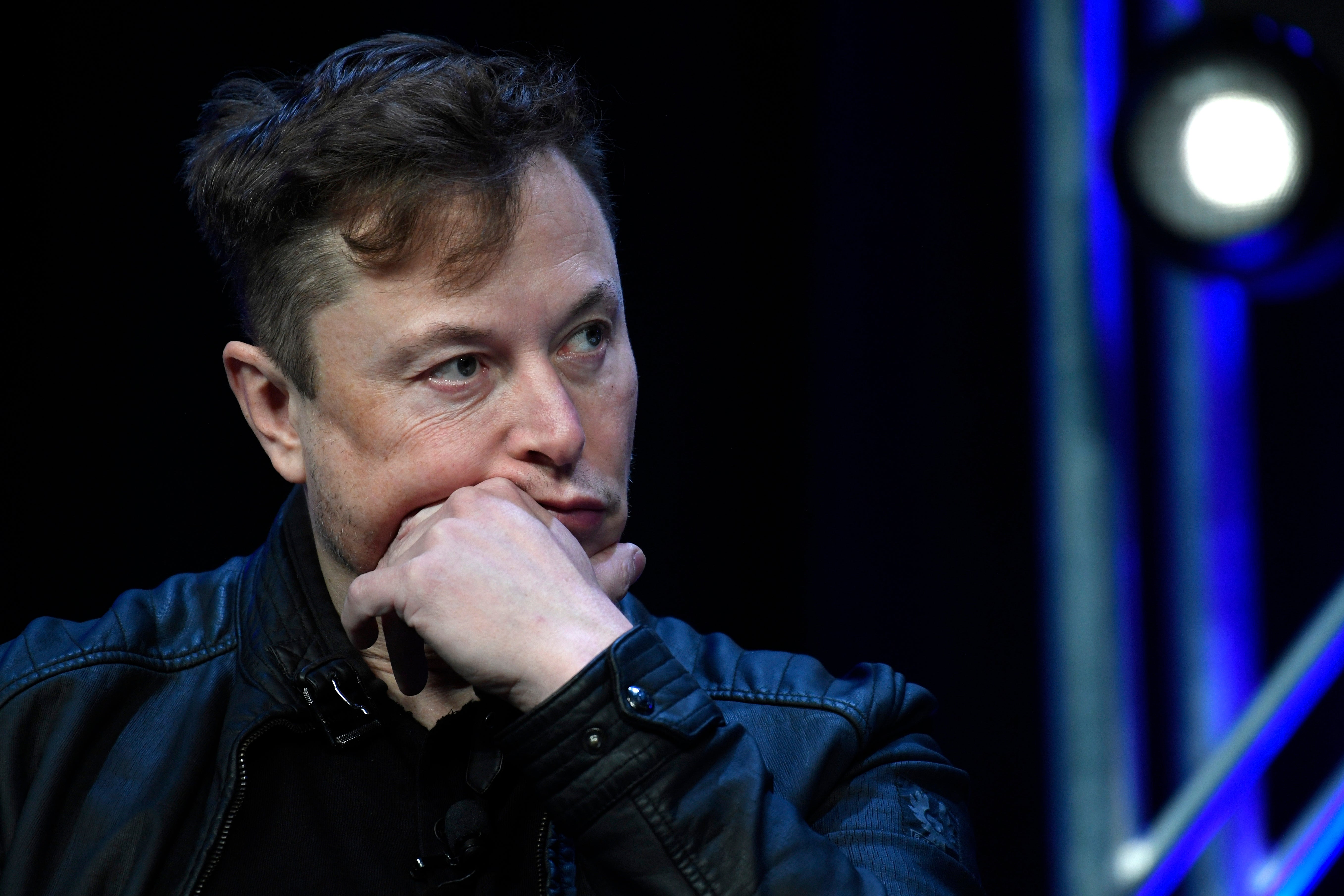As an expert in men and masculinity – here’s my advice to Elon Musk
Right now, the world’s richest man appears to be in the most precarious position of his life, writes Dr Stephen M Whitehead


No one lives a life without some suffering. For a great many, that suffering starts early and has a lifelong impact – as it seems it did for Elon Musk.
When asked in 2018 whether he had a happy childhood, Musk’s masculine mask fell, revealing the wounded, tearful, contested man behind it. “No, it was terrible,” he said. “It was very violent. Not a happy childhood. I was almost beaten to death. My father was emotionally abusive. He had serious issues.” Musk’s father has called the claims of abuse “unbridled rubbish”.
In the 2023 biography of Musk it is claimed that aged 17, he realised he would have to escape from the physical torments of his father. But perhaps he couldn’t escape totally.
Justine Wilson, Musk’s first wife, recalls: “I would see shades of these horrible stories Elon told me surface in his own behaviour. It made me realise how difficult it is not to be shaped by what we grew up with, even when that’s not what we want. You’re turning into your father [we’d tell him]. It was our coded phrase to warn him that he was going into the realm of darkness.”
Musk does not appear to have resolved a lot of these issues, illustrated by some of his conduct during interviews and on social media in recent years.
There are many examples, including calling one of the 2018 Thai cave rescuers a “paedo guy”; in 2020 tweeting debunked and controversial coronavirus claims while calling stay-at-home orders “fascist”; and in the past few weeks, launching into an expletive-laden rant against the world-renowned brands who have halted spending on Twitter/X following his endorsement of an antisemitic post.
If that wasn’t enough, Musk now regularly heads into the political arena, bizarrely warning the UK that it is “inevitably” heading for civil war.
Musk responds to his critics by declaring he’s a “free speech absolutist” – on the assumption that this allows him to say anything he likes. But he is wrong. Free speech is an oxymoron; we must all be held accountable for the words we use, just as we must for our actions. It looks to me as though he is disappearing down a toxic masculinity rabbit hole – so how did he get there, and is there any way out?
One of the core traits of toxic masculinity is bullying. This might be physical or emotional, or even both – anything to diminish another human being and in such a way as to stress his victim’s helplessness. This is an act of power – as well as aggression – but it is also an act of cowardice; because bullies always hide behind something or someone. Musk attacks but then hides behind his enormous wealth, which he appears prepared to use to silence critics, threaten and insult others.
The latest victim of Musk’s bullying is Humza Yousaf, the former first minister of Scotland, with whom Musk has a long-running feud on Twitter/X. Musk has labelled Yousaf a “super racist scumbag” and goaded the politician to sue him.
Perhaps realising that he had personal issues to address, Musk recently went to see a psychiatrist. Unfortunately, he chose Jordan Peterson, a notorious anti-woke, anti-feminist conservative. Did this help? Not really – what transpired in their two-hour interview was merely reinforcement of both Peterson’s and Musk’s prejudices, especially Musk’s apparently overt transphobia.
“Gender-reassignment surgery is child mutilation and sterilisation,” Musk said. “I was tricked into consenting to this for my son. I lost my son, essentially. I vowed to destroy the woke mind virus after that.”
Unsurprisingly, this attitude has resulted in Musk’s transgender daughter, Vivian Jenna Wilson, declaring that she “no longer wishes to live with or be related to my biological father in any way, shape or form”.
Musk’s internal struggle between light and dark, first witnessed by his family, is increasingly being played out in public – and right now, it looks as though the dark side is winning. Musk presents as angry, vengeful, embittered, and his hatred of what he deems “woke” appears to grow by the day.
Just as it was with Donald Trump and his father, so it seems that it was Musk’s father who showed his son the way of toxic masculinity. Trump has gone deep into it, becoming unbalanced, angrier, and totally without virtue.
Men like Trump and Musk seek validation, innocently reproducing what they perceive to be “natural” male behaviour. Unfortunately, they then come to find their traditional gender ideas and patriarchal beliefs rejected by a society which is increasingly adopting progressive values.
This generates enormous psychological conflict. Men like this feel rejected. And they’re not wrong, because they (or their masculinity) is being rejected. These men can get very angry indeed. And very lonely.
Isolated, lonely, they can then lash out – and worse. Men deep inside the rabbit hole (like Andrew Tate) will likely never come out, because to do so is too difficult – it requires them to change their masculinity completely. Such an identity transformation is often beyond them.
It is clear to me that Musk finds toxic masculinity inviting – and over the past few years has actively chosen to go deeper into it. His recent media comments reveal a man no longer even paying lip service to liberal values. He has fully declared which side he is on.
Global society requires leaders and role models who are empathetic, reflective, kind, inclusive and open to learning; not least about themselves. In other words, emotionally intelligent.
Right now, it appears as though Musk is in the most precarious position of his life. His wealth will not aid him – it is only likely to create an even greater gap between him and reality. His version of “masculinity” is not the future, that is for sure.
Here is my advice to Musk: Give yourself a break from social media, ignore politics for a bit and focus on yourself. Use that time to reconnect with your family – including estranged members.
Speaking of family, forgive your father and stop trying to be his son – be your own man instead. Most importantly of all, ask yourself: “Are you in danger of becoming the sort of man you always feared and hated?” And listen deeply to the answer.
Dr Stephen M Whitehead is a British sociologist who has written extensively about men and masculinities, gender identity, international education, and inclusivity





Join our commenting forum
Join thought-provoking conversations, follow other Independent readers and see their replies
Comments